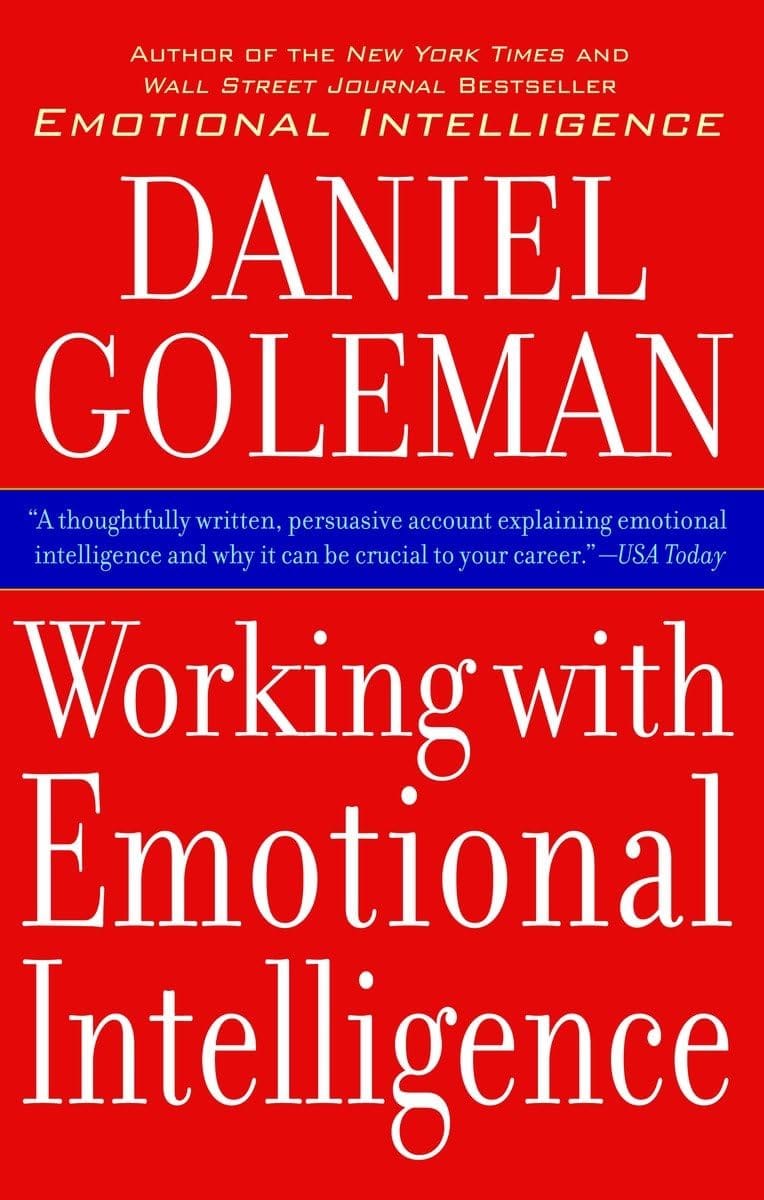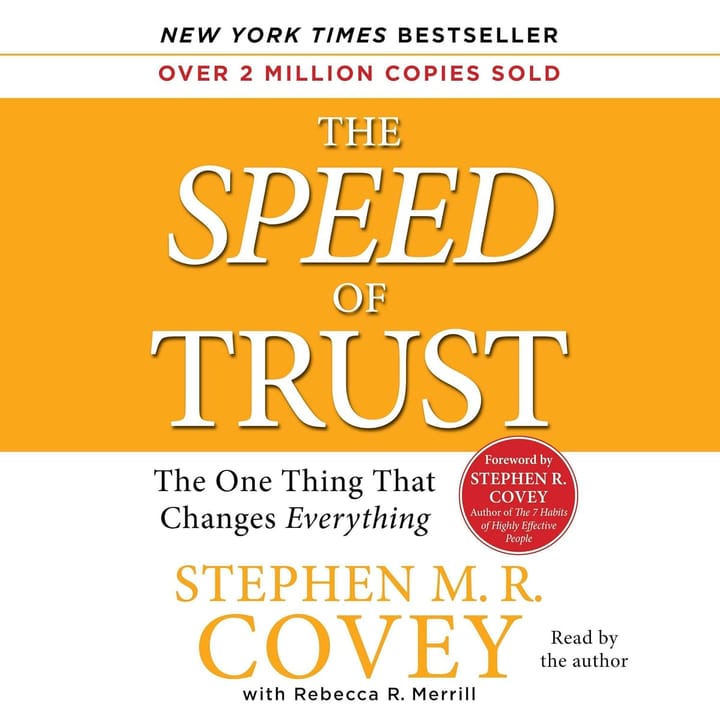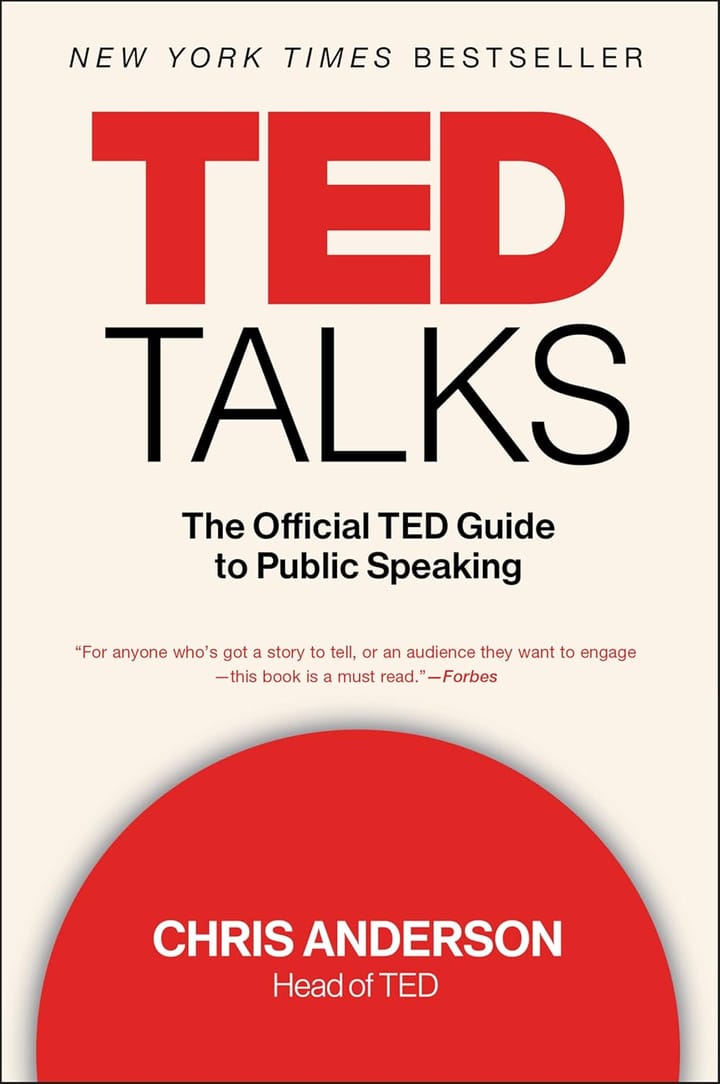Book Summary: Working with Emotional Intelligence
Discover how emotional intelligence can impact your success and relationships in our summary of Daniel Goleman's book, "Working with Emotional Intelligence."

Essential Insights
- Emotional intelligence is crucial for success in the workplace.
- Developing emotional intelligence can lead to better relationships with colleagues and higher job satisfaction.
- Daniel Goleman outlines practical strategies for improving emotional intelligence in his book.
Introduction to Working with Emotional Intelligence
Working with Emotional Intelligence by Daniel Goleman is a seminal work that dives into the realm of emotions and their impact on our professional lives. Goleman, a renowned psychologist and science journalist, explores how emotional intelligence can be the key to success in the workplace. Published in 1998, this book revolutionized the way we view intelligence and paved the way for a deeper understanding of the role emotions play in our work interactions and leadership styles.
For individuals seeking to enhance their leadership skills and improve their professional relationships, Working with Emotional Intelligence is a treasure trove of knowledge and insight. By delving into the importance of self-awareness, self-regulation, motivation, empathy, and social skills, Goleman provides readers with practical strategies to navigate the complexities of the modern workplace. This book offers a roadmap for cultivating emotional intelligence, enabling individuals to build stronger connections, make better decisions, and lead with authenticity and empathy. Whether you're a seasoned leader or an aspiring professional, the lessons shared in this book are invaluable for personal growth and career success.
Buy "Working with Emotional Intelligence" on Amazon
Summary of Working with Emotional Intelligence
Working with Emotional Intelligence emphasizes the importance of emotional awareness in personal and professional success. Daniel Goleman argues that traditional measures of intelligence, such as IQ, do not fully capture an individual's potential in the workplace. By exploring the concept of emotional intelligence, Goleman illustrates how skills like self-regulation, empathy, and social skills greatly influence performance, leadership, and relationships. This emphasis on emotional competencies presents a compelling case for their integration into training, development, and organizational practices. One of the book's unique contributions lies in its practical approach to applying emotional intelligence in various settings.
Goleman not only outlines the significance of emotional skills but also provides strategies for individuals and organizations to cultivate these abilities. This focus on actionable insights sets the book apart, making it a valuable resource for leaders looking to enhance their effectiveness. By presenting real-life examples and case studies, Goleman demonstrates how emotional intelligence can lead to improved workplace culture and collaboration, ultimately driving better outcomes for teams and organizations.
As we explore the key themes and strategies presented in Working with Emotional Intelligence, it becomes clear that developing emotional competencies is crucial for anyone seeking to grow as a leader. Enhancing self-awareness and interpersonal skills fosters stronger relationships and better decision-making. Furthermore, understanding and managing emotions can transform workplace environments, creating spaces where individuals thrive both personally and professionally. This foundational knowledge serves as a springboard for further discussion and exploration of leadership development and personal growth strategies throughout the article.
Key Lessons From Working with Emotional Intelligence
Emotional Awareness
One of the foundational lessons in Working with Emotional Intelligence is the importance of recognizing one's own emotions. Goleman emphasizes that self-awareness is crucial for understanding how feelings influence thoughts and behaviors. By being attuned to our emotional states, we can respond more thoughtfully and avoid knee-jerk reactions that may cause misunderstandings or conflicts. This awareness allows for a reflection that can lead to better decision-making and more effective communication.
An illustrative example from the book shows how leaders who can identify their emotions tend to inspire trust and loyalty in their teams. When a manager acknowledges their stress during a challenging project, it humanizes them and encourages open dialogue with team members about workload and expectations. This transparency fosters a supportive environment where constructive feedback can thrive.
This lesson highlights the significance of emotional awareness in personal and professional settings. By understanding our feelings, we lay the groundwork for empathy towards others. Readers can find inspiration in the idea that enhancing self-awareness can profoundly impact leadership effectiveness and interpersonal relationships. Adopting this practice can lead to improved collaboration and a positive workplace culture, encouraging growth in one's career and personal life.
Empathy and Social Skills
Another key takeaway from Goleman's work is how developing empathy can enhance one's social interactions and relationships. He posits that being able to understand and share the feelings of others is an invaluable asset. Empathy fosters trust and strengthens connections, which are essential for successful teamwork and conflict resolution.
Motivation and Resilience
Motivation emerges as a crucial element in Goleman's exploration of emotional intelligence. He emphasizes that intrinsic motivation—driven by personal values and goals—can lead to higher achievement and satisfaction. Recognizing what truly inspires us can help maintain focus and perseverance in the face of setbacks.
An example from the book illustrates how a marketing professional, who faced multiple rejections early in her career, eventually succeeded by relying on her internal motivation. Instead of being deterred, she viewed challenges as opportunities to learn and adapt, ultimately developing a campaign that garnered acclaim. This resilience allowed her to thrive amid adversity and achieve personal fulfillment.
This lesson inspires readers to harness motivation as a tool for overcoming obstacles. By understanding the difference between intrinsic and extrinsic motivation, individuals can identify what drives them and use that knowledge to propel themselves forward. Embracing motivation as a source of strength can lead to tangible growth, resilience, and success in all areas of life.
Handling Relationships and Conflict
Working with Emotional Intelligence also sheds light on the significance of interpersonal skills when it comes to managing relationships and resolving conflicts. Goleman explains that emotional intelligence equips individuals with the ability to navigate social complexities, fostering stronger connections and collaborations.
Application Ideas for Working with Emotional Intelligence
Recognizing and Understanding Emotions
The first step in applying the lessons of Working with Emotional Intelligence is to foster an awareness of both your own emotions and those of others. Begin by practicing mindfulness techniques, such as pauses during your day to acknowledge what you are feeling and why. Journaling can also facilitate this process; take time to write down your emotional experiences and triggers to better understand your emotional landscape.
In leadership roles, you can implement this by actively seeking feedback on your emotional responses from colleagues. By creating an open environment for discussion, you encourage others to express their emotions as well. This practice can enhance team morale and lead to stronger collaborative efforts, as people feel seen and valued.
To make this process easier, set reminders throughout your day to check in with yourself and your environment emotionally. Regularly practicing this self-reflection can help integrate emotional awareness into your daily routine. Additionally, engage in exercises that explore emotional cues in body language and tone of voice, which can enhance your ability to empathize with those around you.
Another practical idea is to establish a regular feedback loop where team members can share how they feel about projects and group dynamics. Creating open dialogues encourages everyone to practice sharing their emotions, which fosters an emotionally intelligent culture within a team or organization. For instance, a manager who conducts weekly check-ins with their team can gather insights on group sentiments, allowing for timely adjustments and deeper connections among team members.
Building Empathy
Empathy is a crucial component of emotional intelligence, and a fundamental step is to actively listen to others. This means giving your full attention during conversations, avoiding distractions, and demonstrating that you value their perspective. Reflective listening—repeating back what you've heard to confirm understanding—is a valuable technique here that shows genuine engagement.
In the workplace, you can implement this by conducting a simple exercise with your team where each member shares a personal or professional story, and others practice active listening without interrupting. This fosters trust and cultivates a sense of safety in sharing, ultimately enhancing collaboration and communication within the team.
To simplify this practice, schedule regular team-building activities focused on communication skills. This could involve workshops or informal gatherings where team members can practice listening in a relaxed environment. Encouraging a culture where empathy is valued can lead to improved teamwork and morale.
Another effective application is to offer mentorship opportunities, where experienced members of a team guide newer employees. By sharing experiences and challenges, mentors not only provide invaluable support but also model empathetic behavior, enriching the work culture. For example, a senior employee mentoring an intern can create a lasting bond while equipping the intern with the skills to navigate workplace challenges, fostering an empathetic community.
Developing Emotional Regulation Skills
Emotional regulation is vital for maintaining composure in high-stress situations. A practical step is to practice techniques such as deep breathing or mindfulness meditation when you feel overwhelmed. By taking a moment to regain focus, you are more equipped to respond thoughtfully rather than reactively to emotional triggers in yourself and others.
In leadership, you can model this behavior by demonstrating calmness during challenging situations, which helps set a standard for your team. Discuss your strategies for managing emotions during team meetings, encouraging others to adopt similar practices and creating a more resilient work environment.
To enhance this process, it’s helpful to identify specific scenarios that trigger stress for you and practice your calming techniques in those situations beforehand. Creating a personal toolkit of strategies you can draw from will make it easier to regulate your emotions when it counts.
In addition, consider implementing regular stress management workshops within your organization. By addressing emotional regulation as a team skill, you create a comprehensive approach that empowers everyone to manage their reactions effectively. A real-world example would be a crisis management training session, where employees learn to remain composed under pressure, which can significantly benefit team dynamics during actual crises.
Fostering Motivation and Initiative
Motivation is a cornerstone of emotional intelligence, and a valuable step is to set personal and professional goals that align with your passions. By regularly reviewing and adjusting these goals, you foster a sense of purpose that can drive your actions and decisions. Engaging in self-assessment can clarify your values and aspirations, setting a more meaningful career path.
In a leadership position, encourage team members to set their own goals and create an environment where they can openly share their progress. This practice not only boosts individual motivation but also cultivates a sense of accountability within the team, enhancing overall performance and engagement.
To streamline this process, create a shared platform for goal tracking, allowing everyone to see their objectives and support one another in achieving them. Regularly celebrate milestones to maintain enthusiasm and encourage collective motivation across the team.
An additional way to cultivate motivation is to implement recognition programs that reward individual and team achievements. These programs can inspire hard work and dedication, driving employees to strive for excellence. For example, a company that holds monthly recognition events can uplift employees and reinforce the value of motivation within its culture, contributing to overall success.
Concluding Thoughts
Working with Emotional Intelligence by Daniel Goleman presents a wealth of knowledge on how emotional competencies can significantly influence both personal and professional success. The article highlights several key themes, including the importance of emotional awareness, empathy, motivation, and effective relationship management. By recognizing our own emotions and understanding those of others, we can foster stronger connections, improve communication, and navigate conflicts more adeptly.
The importance of self-awareness is emphasized as a foundational skill that enhances decision-making and promotes a supportive workplace culture. Goleman's exploration of empathy reveals how understanding others’ feelings can build trust and inspire loyalty, ultimately driving team performance. Additionally, the discussion around motivation underscores how intrinsic drives can bolster resilience and encourage professionals to view challenges as opportunities for growth. Furthermore, the article illustrates practical strategies for applying these concepts in everyday scenarios. From fostering emotional regulation to building empathetic relationships, the actionable steps provided can empower individuals to cultivate their emotional intelligence in both leadership roles and team settings. By sharing personal experiences and implementing structured feedback practices, readers can create an environment where emotional awareness and mutual support thrive.
As you consider the various lessons outlined in the article, it becomes clear that integrating emotional intelligence into your professional life can lead to profound benefits. The principles presented offer a pathway for personal growth and enhanced leadership effectiveness. By actively applying these insights, you can cultivate not just a more successful career but also foster a positive work environment for those around you.
Embrace the opportunity to delve deeper into Working with Emotional Intelligence and embark on your journey to enhance your emotional competencies. As you apply these valuable lessons in your daily interactions and leadership practices, remember that you have the power to not only transform your own experiences but also inspire those around you. Take that first step today and witness the positive changes that can unfold in both your professional and personal life.
Related Topics
- Emotional Intelligence in Leadership - Understanding the role that emotional intelligence plays in effective leadership and how it can impact organizational success.
- Emotional Intelligence in the Workplace - How emotional intelligence can influence interactions, communication, and overall productivity in a work environment.
- Mindfulness and Emotional Intelligence - Exploring the connection between mindfulness practices and the development of emotional intelligence skills.
- Emotional Intelligence and Mental Health - The impact of emotional intelligence on mental well-being and the ability to cope with stress and challenges.
- Emotional Intelligence in Relationships - How emotional intelligence can enhance relationships, communication, and conflict resolution with others.
Reflection & Discussion Questions
Reflection is a powerful tool for personal growth and leadership development. Whether you're exploring your own experiences or engaging in thoughtful group discussion or team training, reflection questions help uncover new insights, clarify values, and inspire meaningful action. Below are questions designed to deepen your understanding of the concepts taught in Working with Emotional Intelligence, and facilitate constructive conversations with your team or group.
- How can self-awareness of your own emotions improve your decision-making and communication in leadership roles?
- What strategies can you implement to enhance your empathy and strengthen relationships with your team members?
- How can you leverage motivation to overcome obstacles and achieve personal fulfillment in your professional life?
- In what ways can you handle relationships and conflict more effectively by applying emotional intelligence skills?
- How can recognizing and understanding emotions in yourself and others lead to a more emotionally intelligent workplace culture?
- What steps can you take to build empathy and create a more collaborative and communicative team environment?
- How can developing emotional regulation skills help you maintain composure and make better decisions under pressure as a leader?
- What role does motivation play in your leadership practice, and how can you cultivate a sense of purpose among your team members?
- How can you encourage initiative and goal-setting within your team to enhance performance and engagement?
- What strategies can you use to implement recognition programs that inspire hard work and dedication among your employees?
- How can you apply the lessons of emotional intelligence to improve workplace culture and drive better outcomes for your team and organization?
- What practical steps can you take to foster emotional awareness and empathy in your daily interactions with team members and colleagues?
- How can you model emotional regulation and calmness in leadership positions to set a positive example for your team?
- What impact can intrinsic motivation have on achieving your personal and professional goals, and how can you cultivate this type of motivation in yourself and others?
- In what ways can you handle relationships and resolve conflicts more effectively by actively listening and seeking to understand others' perspectives?
Recommended Reading
Below are a few recommended books related to concepts taught in Working with Emotional Intelligence.
- Emotional Intelligence 2.0 by Travis Bradberry and Jean Greaves. This book provides strategies for improving emotional intelligence in the workplace and beyond.
- Leadership: The Power of Emotional Intelligence by Daniel Goleman. Explores how emotional intelligence is crucial for effective leadership and offers practical advice on developing these skills.
- The EQ Edge: Emotional Intelligence and Your Success by Steven J. Stein and Howard E. Book. This book discusses the importance of emotional intelligence in various aspects of life, including career success and personal relationships.
Frequently Asked Questions
What is emotional intelligence and why is it important?
Emotional intelligence refers to the ability to recognize, understand, and manage our own emotions, as well as being able to recognize, understand, and influence the emotions of others. It is important because it plays a crucial role in how we approach relationships, make decisions, cope with stress, and communicate effectively. People with higher emotional intelligence are more likely to have successful interpersonal relationships, be better leaders, and have overall greater well-being.
Can emotional intelligence be taught?
Yes, emotional intelligence can be taught and developed over time. By focusing on self-awareness, self-regulation, empathy, and social skills, individuals can improve their emotional intelligence through practices such as mindfulness, emotional self-control techniques, and role playing scenarios. Working with a coach or therapist can also help individuals strengthen their emotional intelligence abilities.
How can emotional intelligence benefit my career?
Emotional intelligence can benefit your career in several ways. By being aware of your own emotions and managing them effectively, you can navigate the complexities of workplace relationships more successfully. Additionally, understanding and empathizing with the emotions of others can help you build stronger connections with colleagues, clients, and supervisors. This can lead to improved communication, conflict resolution, and teamwork. Ultimately, having a high level of emotional intelligence can help you excel in your career by enhancing your leadership skills, decision-making abilities, and overall job performance.
How can emotional intelligence be developed?
Developing emotional intelligence requires self-reflection, practice, and a willingness to improve. By becoming more aware of your own emotions and the emotions of others, you can start to regulate your responses and communicate more effectively. Techniques such as mindfulness, empathy training, and stress management can also help in developing emotional intelligence. Remember that it is an ongoing process that takes time and effort, but the benefits of improved relationships and personal growth make it worthwhile.
Buy "Working with Emotional Intelligence" on Amazon
Affiliate Disclaimer
Some of the links on this website may be affiliate links. This means that, at no additional cost to you, we may earn a commission if you click through and make a purchase. Your support through these affiliate links helps sustain and improve the quality of the content we provide.



